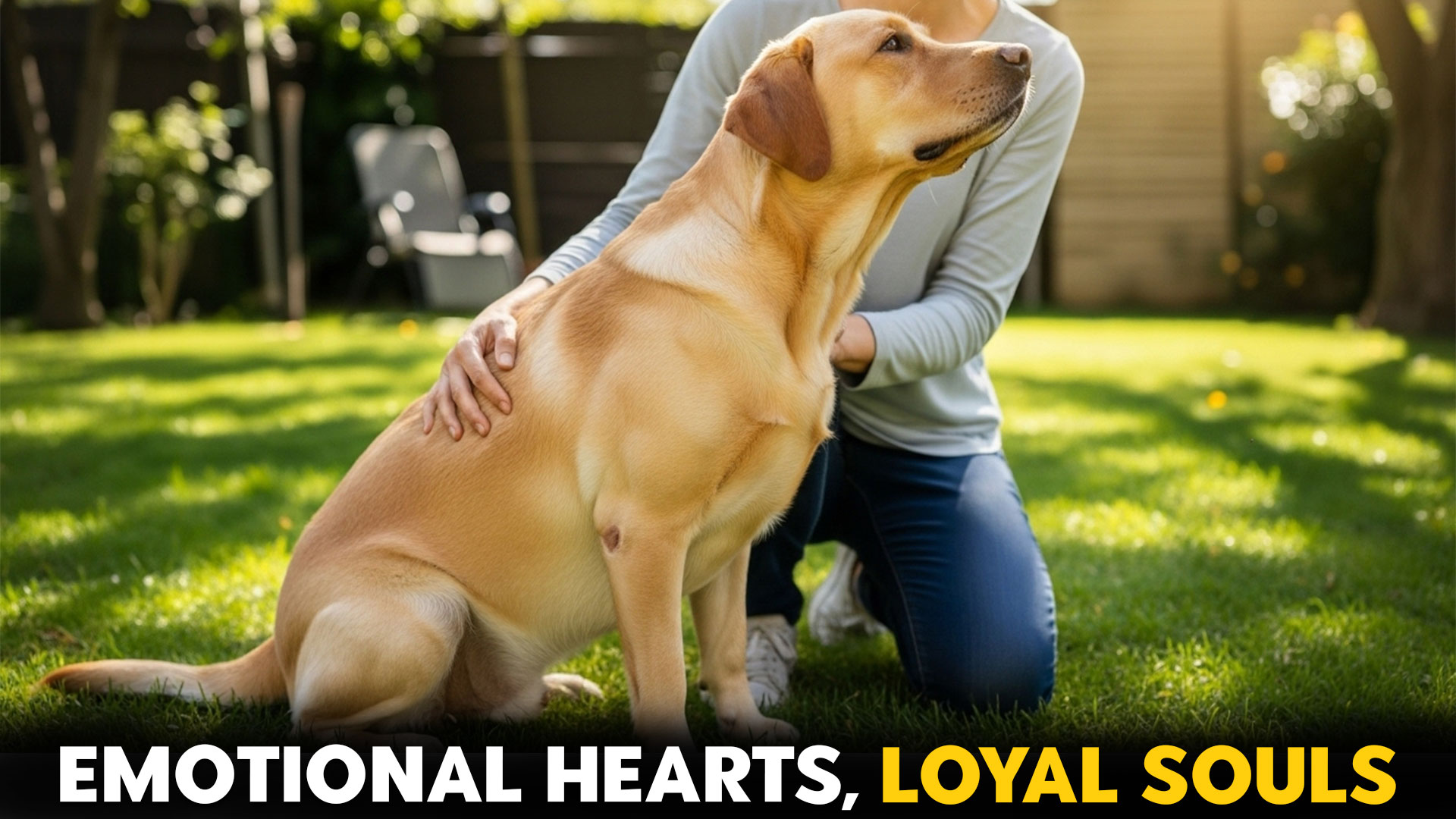Did you know that dogs can actually sense your emotions through smell?
A study found that dogs can detect changes in human scent caused by emotions like fear or happiness — and respond with empathy.
Emotional support dogs take this bond even further, offering comfort during moments of stress, anxiety, or loneliness. Their sensitivity to human feelings isn’t just instinct — it’s love in its purest form.
These smart companions don’t just live beside us; they feel beside us. Whether it’s a soft nuzzle during a bad day or a joyful tail wag when you smile, their hearts mirror ours.
Some breeds naturally excel at reading emotions and forming deep, lasting bonds with their humans.
They’re more than pets — they’re emotional anchors.
In this article, we’ll explore the most popular dog breeds that truly understand the language of the heart.
Best Dog Breeds That Are Highly Emotional
1. Golden Retriever
Few dogs can rival the pure-hearted warmth of a Golden Retriever. Their expressive eyes and gentle demeanor make them natural healers for the soul.
Known for their ability to sense emotions, Goldens often lean onto you—literally—when they know you need comfort, offering silent reassurance with every wag of their tail.
Golden Retrievers are often chosen as emotional support dogs because of their patience, friendliness, and empathetic nature. Their emotional intelligence is remarkable; dogs like Goldens can distinguish between happy and sad human facial expressions.
They mirror your energy, whether that means joining in your laughter or quietly sitting beside you during hard days.
Benefits of this Emotional Support Dog:
Highly intuitive and responsive to human emotions
Naturally affectionate and gentle with all ages
Excellent for therapy and emotional support settings
Promotes emotional stability through consistent companionship
Care and Bonding Tips for Owners:
Offer plenty of daily play and exercise; Goldens love shared activities
Use positive reinforcement—they thrive on praise and affection
Include them in family routines; isolation can make them anxious
Regular grooming helps build trust and calmness
Imagine coming home after a stressful day, and your Golden trots up, rests their head on your knee, and looks up as if to say, “I’m here.” That’s their emotional magic.
They are perfect for families, individuals battling loneliness, or anyone craving a loyal, empathetic companion—Golden Retrievers make every day brighter just by being near.
2. Labrador Retriever
The Labrador Retriever radiates joy the moment it enters a room. Their warm eyes and enthusiastic energy instantly lift the mood, making them one of the most emotionally grounding breeds.
Labs have a rare ability to sense emotional tension and replace it with lighthearted affection that feels like sunshine after a storm.
Known for their cheerful nature and adaptability, Labradors are beloved emotional support companions. Their calm yet playful demeanor helps reduce anxiety and promote confidence in their owners.
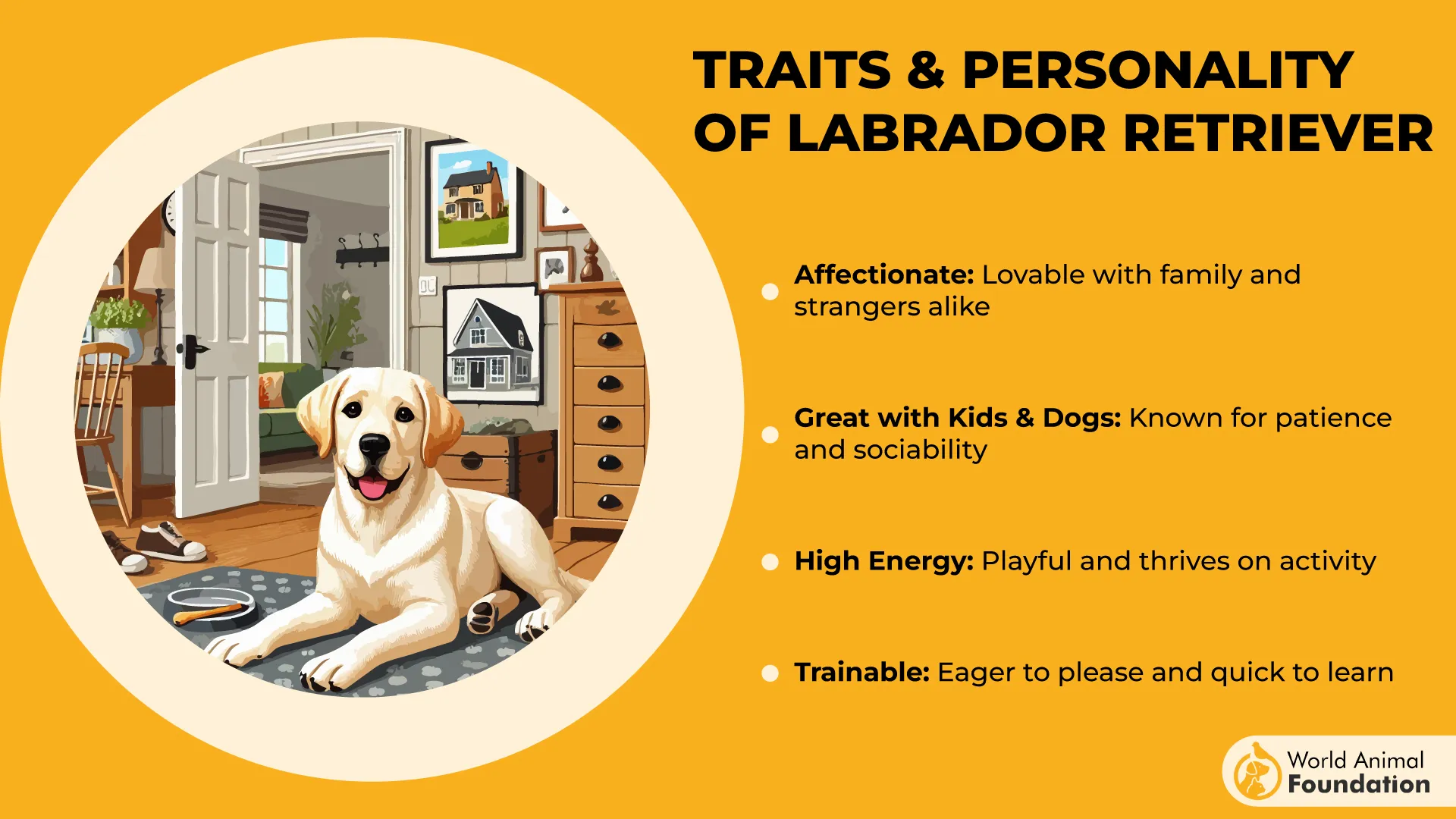
Studies from the American Psychological Association note that time spent with dogs like Labs increases oxytocin—the “love hormone”—fostering emotional healing and trust.
Benefits of this Emotional Support Dog:
Naturally cheerful and uplifting presence
Builds trust quickly through consistent affection
Eases anxiety with play and physical closeness
Perfect for families, seniors, and first-time dog owners
Care and Bonding Tips for Owners:
Provide regular exercise; swimming or fetch keeps them happy
Keep them mentally stimulated with training games
Reinforce calm behaviors with praise and treats
Give them space to cuddle and relax beside you daily
Imagine sitting at the park, feeling low, when your Lab drops a ball at your feet with a goofy grin. That little act of joy reminds you that happiness can always return—and your Labrador will help you find it.
3. Collie
A Collie’s soft, expressive eyes have a way of looking right into your heart. Originally bred for herding, they’ve developed a deep awareness of human emotions, offering comfort in an almost telepathic way. They thrive on connection, noticing when you’re quiet or sad and staying close until you smile again.
Collies are known for their empathy and sense of responsibility toward their loved ones. Their steady temperament and affectionate nature make them incredible companions for people seeking emotional steadiness.
The American Kennel Club (AKC) recognizes Collies as one of the most loyal and intuitive family breeds.
Benefits of this Emotional Support Dog:
Deeply empathetic and emotionally observant
Ideal for individuals needing calm reassurance
Intelligent and eager to please
Creates strong emotional stability at home
Care and Bonding Tips for Owners:
Maintain a consistent daily routine; Collies love predictability
Offer both mental and physical challenges through training
Keep grooming sessions calm and affectionate
Spend quiet, focused time together daily
When life feels overwhelming, a Collie’s soft gaze and steady presence remind you that you’re never truly alone. Perfect for gentle souls who value empathy, connection, and peace.
4. German Shepherd
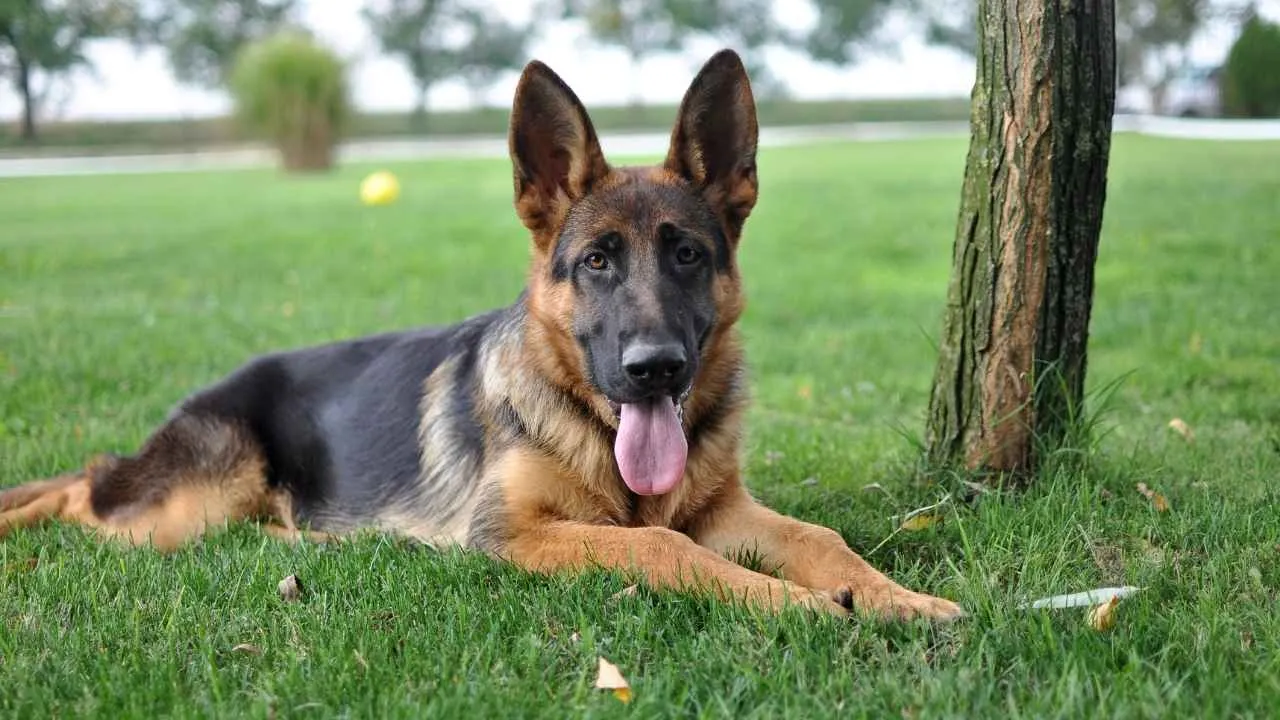
The German Shepherd embodies loyalty in its purest form. Strong yet sensitive, this breed feels every shift in its owner’s emotions and responds with steadfast devotion. Their alert nature makes them not just protectors of the home, but guardians of the heart.

German Shepherds are celebrated for their intelligence and emotional awareness. Their ability to anticipate their owner’s moods has made them one of the most trusted dogs in therapy and service roles.
Research from Frontiers in Psychology found that working breeds like Shepherds display advanced emotional recognition skills through facial and vocal cues.
Benefits of this Emotional Support Dog:
Unmatched loyalty and protective affection
Highly responsive to emotional and environmental cues
Intelligent and purposeful, creating a sense of safety
Builds deep trust with consistent companionship
Care and Bonding Tips for Owners:
Engage them with obedience and focus-based activities
Keep their minds busy with new challenges or jobs
Show consistent love through gentle structure
Socialize early to enhance calm confidence
Picture this: You’re feeling anxious late at night, and your German Shepherd quietly positions itself beside you—alert yet calm. In that moment, you feel protected and understood, without a single word spoken.
5. Cavalier King Charles Spaniel
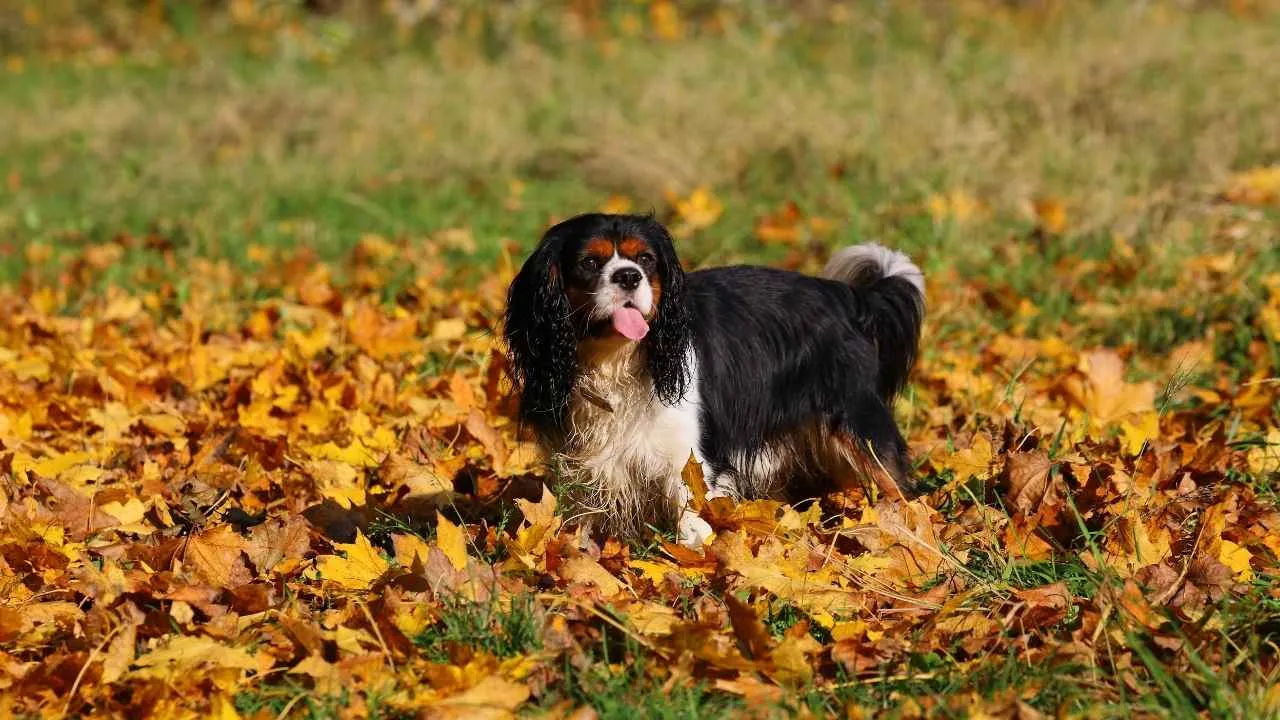
Small but endlessly tender, the Cavalier King Charles Spaniel has a heart that feels much larger than its size. Known for their soulful eyes and affectionate spirit, these dogs are built for emotional closeness. Their calm, soothing nature makes them ideal companions for anyone needing comfort after a long day.
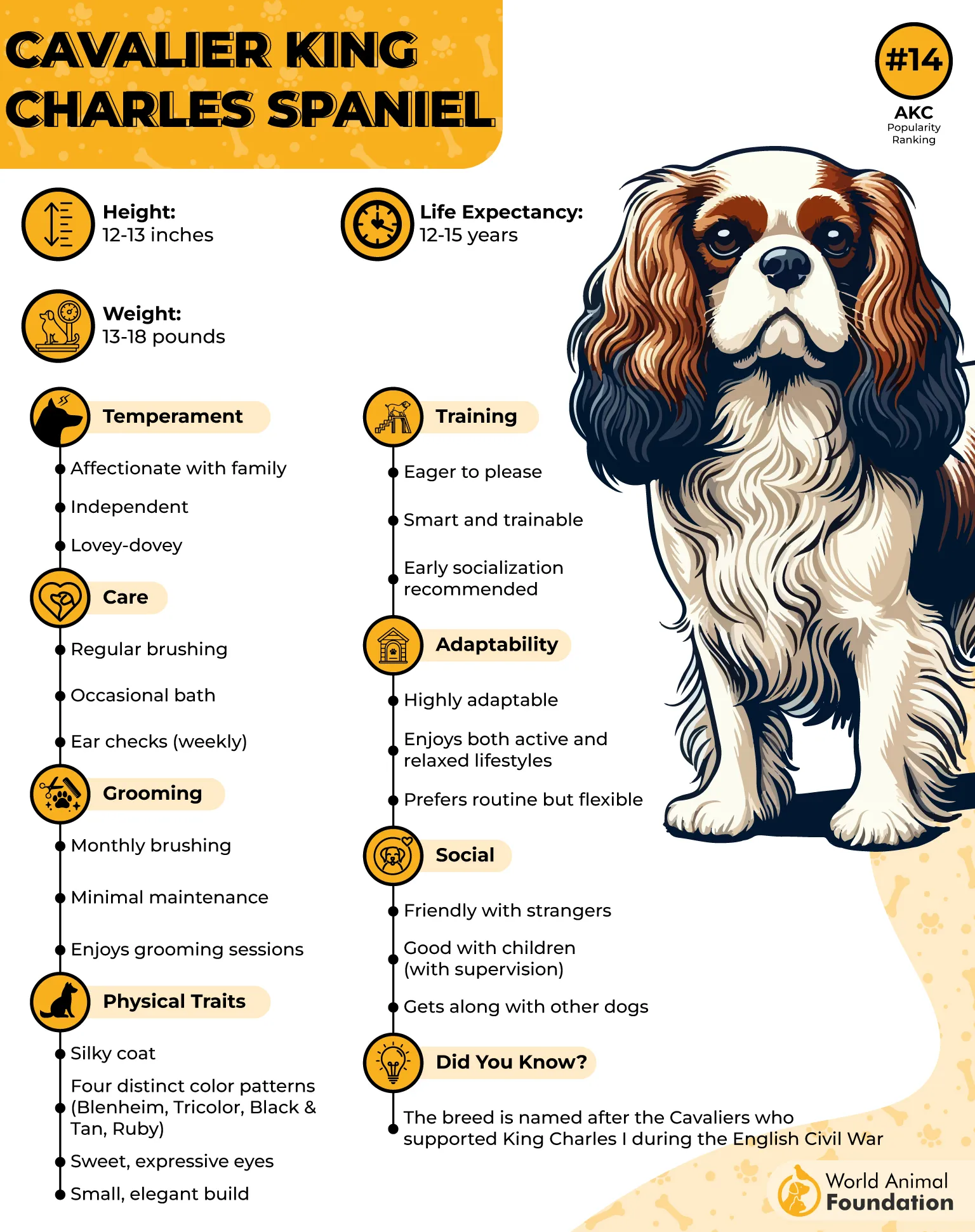
Cavaliers possess a beautiful balance of playfulness and empathy. They can lift your mood with a joyful bounce yet remain still when you need quiet companionship. PetMD highlights their adaptability and gentleness, making them perfect therapy and support dogs.
Benefits of this Emotional Support Dog:
Naturally calming and affectionate temperament
Sensitive to emotional shifts and body language
Excellent lap companion and comfort provider
Ideal for small living spaces or calm households
Care and Bonding Tips for Owners:
Prioritize daily cuddle sessions for emotional connection
Keep walks light and consistent for routine stability
Offer gentle grooming as bonding time
Include them in social settings to maintain confidence
Imagine reading quietly while your Cavalier curls up against you, breathing in rhythm with your heartbeat. Their quiet love creates a kind of peace that words can’t describe—perfect for gentle hearts who crave emotional warmth.
6. Pug

The Pug is proof that joy comes in compact packages. With their expressive faces and playful snorts, they radiate charm that instantly melts away sadness. Pugs thrive on closeness and laughter, bringing humor and light into even the toughest days.
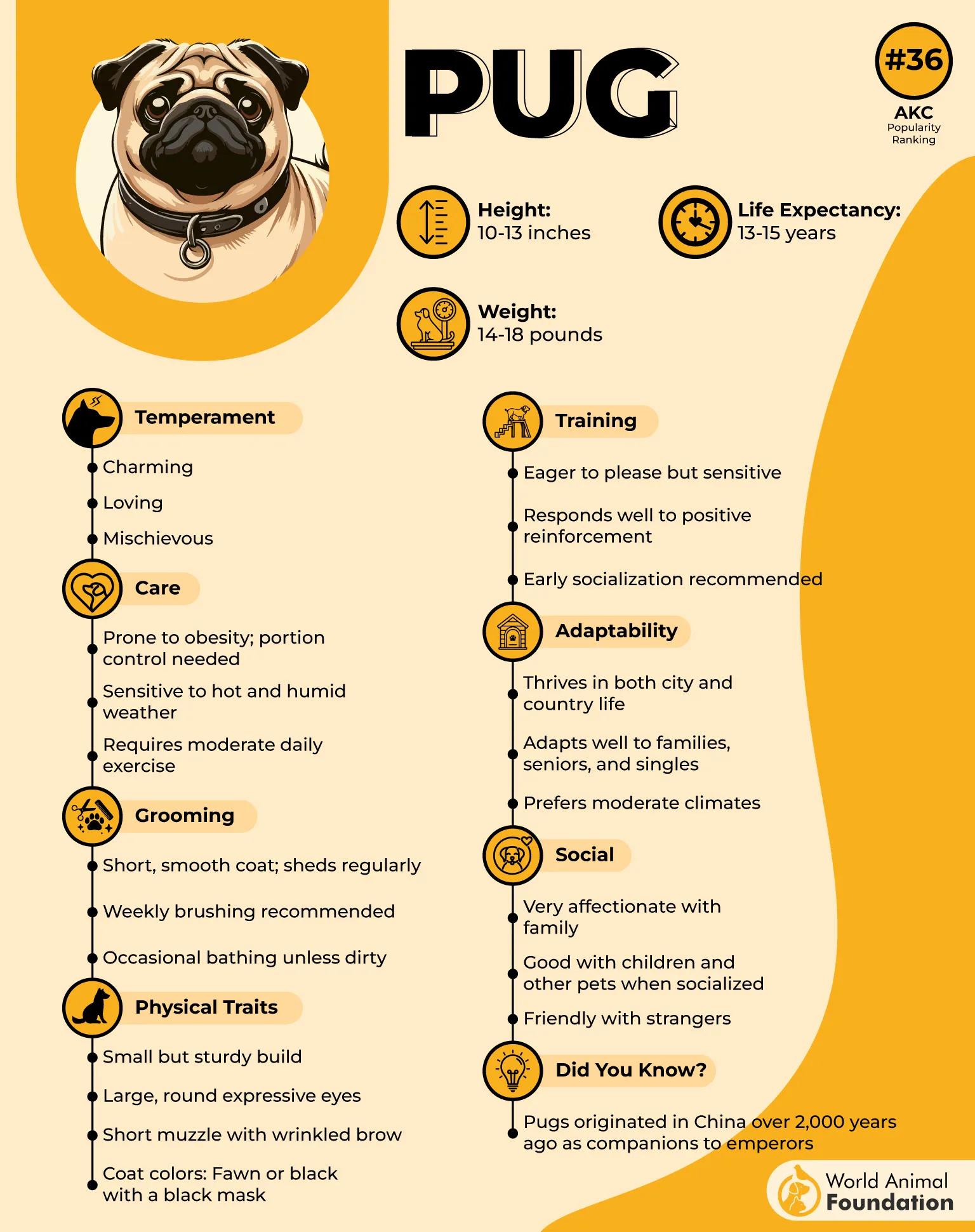
This breed has an uncanny ability to sense emotional lows and counter them with affection and silliness. Their loyalty runs deep, and they love nothing more than being part of their human’s world.
Study shows that the dogs’ behavior correlates with their desire for human contact, making them deeply bonded companions.
Benefits of this Emotional Support Dog:
Brings humor and emotional relief through play
Highly affectionate and people-oriented
Thrives on being close to their owners
Perfect for emotional balance in small spaces
Care and Bonding Tips for Owners:
Keep them cool and comfortable; they’re sensitive to heat
Schedule gentle exercise to maintain health and mood
Give plenty of face-to-face interaction
Reinforce calm affection through routine cuddles
A Pug will remind you to laugh when life gets heavy. Their goofy charm and endless love turn every moment into an emotional lift—ideal for anyone needing daily doses of happiness.
7. Irish Setter
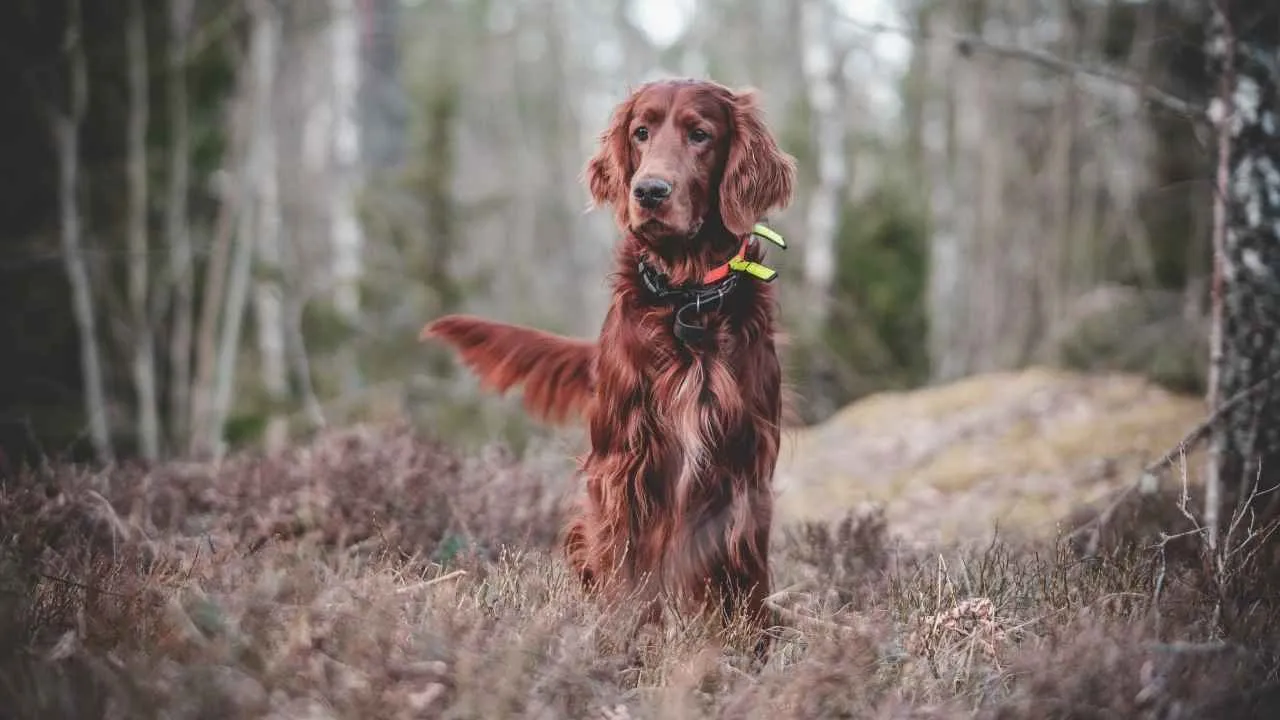
The Irish Setter lives with a heart wide open. Their vibrant personality and radiant coat mirror their emotional warmth, making them natural companions for joyful and active souls. They thrive on friendship and emotional engagement, forming strong bonds with every member of the family.
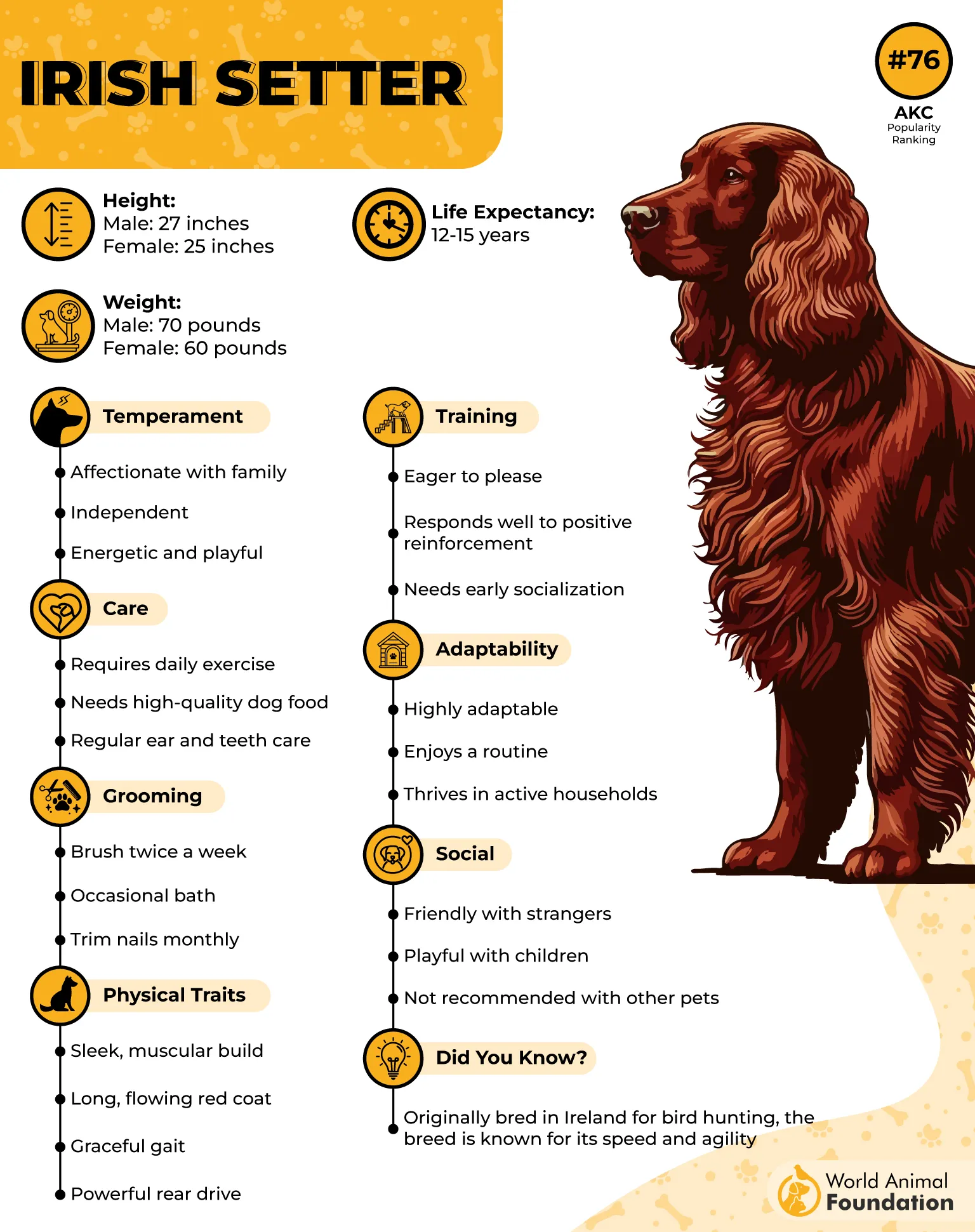
Irish Setters are expressive communicators—they make you feel loved through energy, movement, and play. Active breeds like Setters show affection through shared activities, strengthening emotional bonds. Their enthusiasm brings vitality into every home they enter.
Benefits of this Emotional Support Dog:
Energetic, loving, and emotionally attuned
Uplifts owners with a positive, playful spirit
Forms lasting connections through shared adventure
Inspires movement and emotional well-being
Care and Bonding Tips for Owners:
Dedicate time to long walks or play in open spaces
Include training that emphasizes teamwork
Maintain consistent social interactions
Use soft tones and affection during bonding
Imagine hiking along a sunlit trail with your Irish Setter bounding beside you, glancing back to make sure you’re smiling. They remind you that emotional health thrives on connection—and joy shared is joy multiplied.
8. Doberman Pinscher

Strong, elegant, and incredibly devoted, the Doberman Pinscher forms emotional connections that run deep. Beneath their powerful stance lies a heart that beats for their family. They are sensitive to tone and mood, often responding with quiet companionship or gentle alertness.
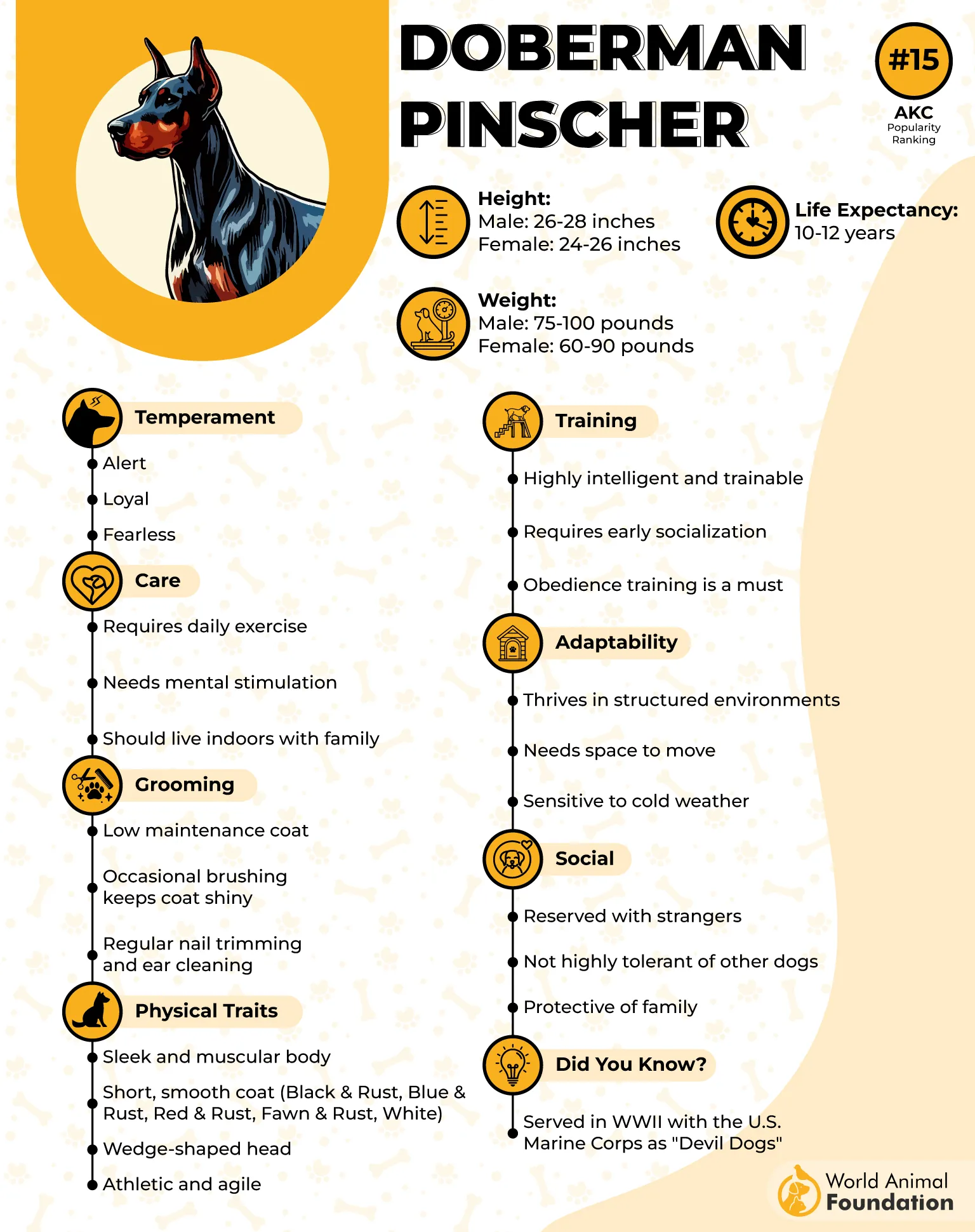
Dobermans are emotionally intelligent protectors. Their loyalty is legendary, and their ability to detect stress hormones adjusts their behavior to comfort their owners. This sensitivity makes them deeply supportive dogs for people seeking both strength and empathy.
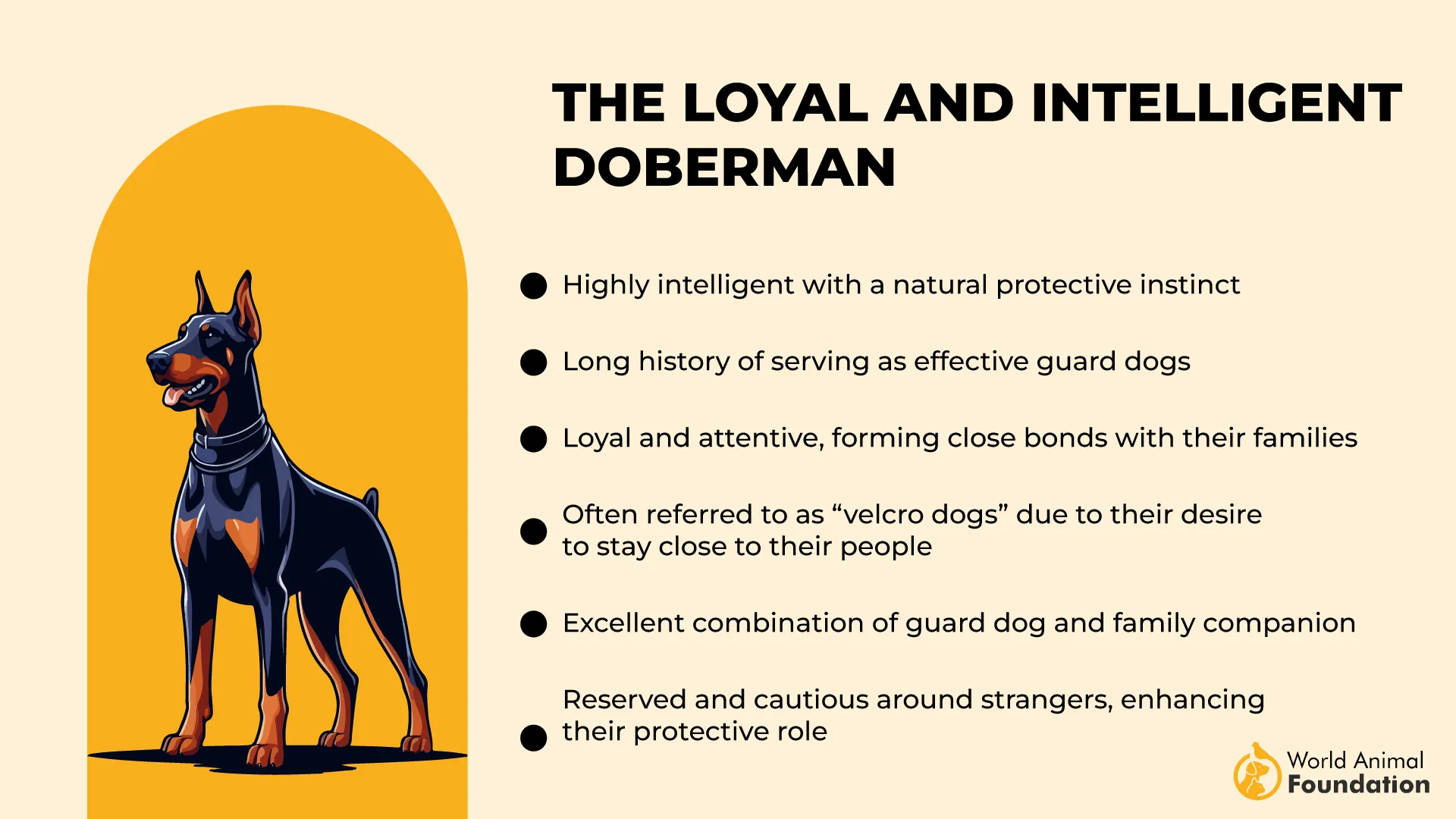
Benefits of this Emotional Support Dog:
Deeply loyal and intuitive bond with owners
Protective yet gentle disposition
Emotionally responsive and confident
Creates a strong sense of safety and trust
Care and Bonding Tips for Owners:
Use clear communication; they respond well to structure
Provide ample exercise and interactive play
Build trust through consistent affection
Offer calm environments for emotional balance
Picture your Doberman quietly sitting beside you during moments of doubt—steady, poised, and watching over you. Their presence alone can restore confidence and peace, perfect for those who need strength wrapped in affection.
9. Yorkshire Terrier
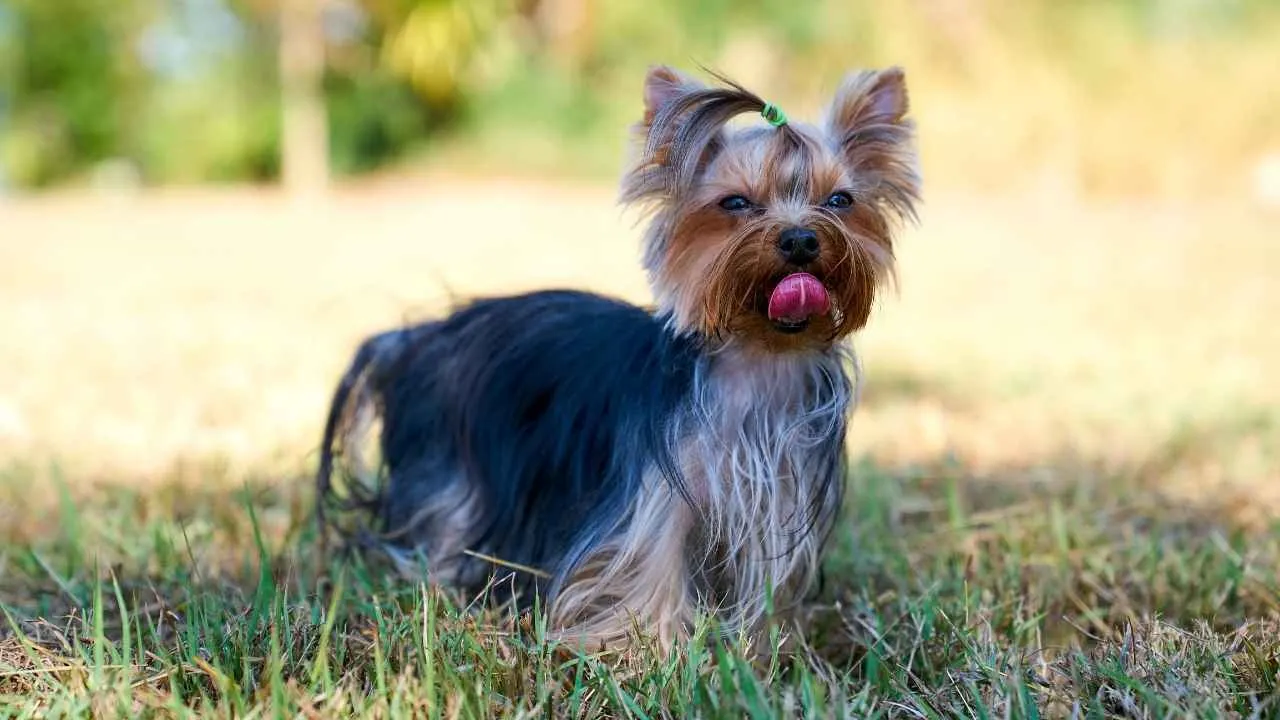
Tiny yet overflowing with emotion, the Yorkshire Terrier is proof that size doesn’t define heart. Their curious nature and affectionate temperament make them delightful emotional support companions. Yorkies thrive on love and are happiest when nestled close to their favorite person.
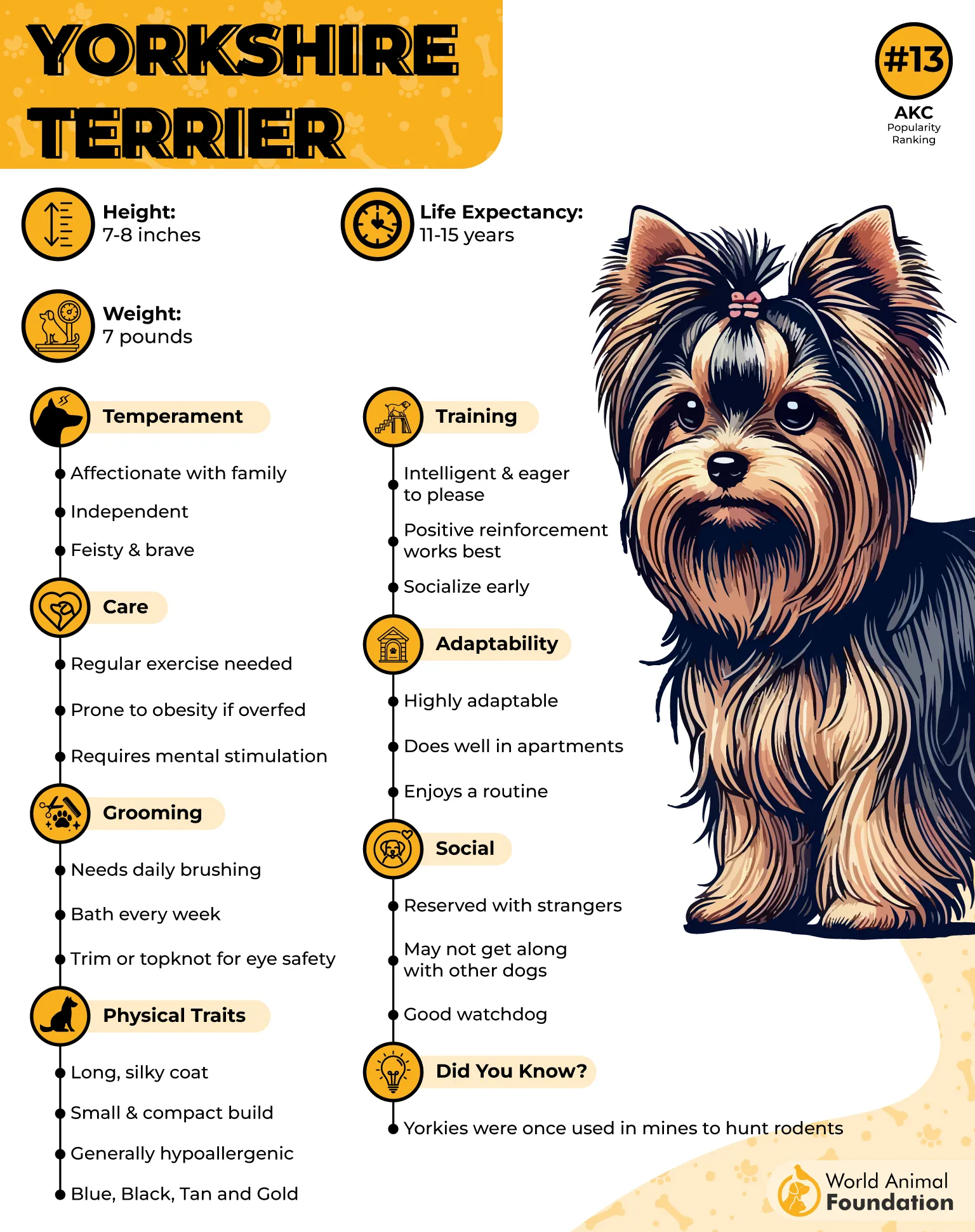
Known for their lively personalities and big emotions, Yorkies form bonds rooted in loyalty and attentiveness. The PDSA highlights their sensitivity to human tone and expression, making them responsive comforters during emotional moments.
Benefits of this Emotional Support Dog:
Deeply affectionate and loyal pocket companion
Brings warmth and cheer to any environment
Easily portable, ideal for constant companionship
Provides emotional balance through touch and presence
Care and Bonding Tips for Owners:
Keep grooming gently; it doubles as bonding time
Offer cozy spaces for relaxation and warmth
Engage them with gentle play and conversation
Maintain steady routines for reassurance
Picture sitting with your Yorkshire Terrier resting in your lap, their heartbeat syncing with yours. That quiet togetherness embodies unconditional love—a perfect reminder that emotional support often comes in the smallest, most devoted packages.
FAQs
How can emotional dogs help improve mental health?
Emotional support dogs help reduce stress, anxiety, and loneliness through consistent affection and presence. Their ability to sense human emotions provides comfort during tough moments, promoting calmness, lowering cortisol levels, and releasing oxytocin—the hormone linked to happiness.
Can emotional breeds become too attached to their owners?
Yes, some emotional breeds—often called “velcro dogs”—can become deeply attached and crave constant companionship. While this closeness is part of their charm, it’s important to balance attention with independence training.
How can I train a highly emotional dog without overwhelming them?
Training a highly emotional dog works best through patience, positivity, and calm consistency. Use gentle cues, rewards, and affection rather than stern corrections. Keep sessions short and engaging, focusing on praise and shared enjoyment.
Conclusion
In the vast dog world, emotional support animals remind us that empathy has fur and a heartbeat.
These emotional support dog breeds—known for their loving nature, gentle temperament, and big hearts—form some of the deepest emotional bonds with their owners, offering comfort and calm through every stage of life.
Unlike service dogs that perform specific tasks, certain breeds like Poodles, Shih Tzus, Border Collies, and even mixed breeds shine in their ability to provide comfort through human companionship.
Their emotional radar and friendly temperament make them wonderful companions, perfect for anxiety relief, panic attacks, or simply brightening daily life.
If you’re searching for an emotionally tuned friend who will offer support, consider exploring other breeds such as Great Danes, Shiba Inus, or even those velcro dogs who love indoor living and daily exercise.


